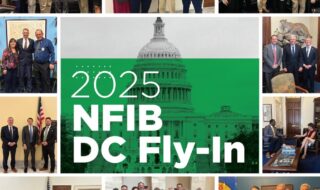Topics:
December 13, 2022 Last Edit: June 5, 2025
Inflation Remains the Top Business Problem for Maryland Small Businesses
- Owners expecting better business conditions over the next six months improved three points from October to a net negative 43%, a recession reading.
- Forty-four percent of owners reported job openings that were hard to fill, down two points from October, but historically high and not typical of a recession period.
- The net percent of owners raising average selling prices increased one point to a net 51% seasonally adjusted, a high reading but lower than earlier this year.
- The net percent of owners who expect real sales to be higher improved five points from October to a net negative 8%, a weak economic reading.
State:
Get to know NFIB
NFIB is a member-driven organization advocating on behalf of small and independent businesses nationwide.
Related Articles


July 3, 2025
NFIB Thanks Congress for Passing Landmark Small Business Tax Re…
NFIB applauds Congress for passing the One Big Beautiful Bill Act, which in…
Read More


July 2, 2025
NFIB Key Votes One Big Beautiful Bill Act in U.S. Senate and Ho…
NFIB key votes the One Big Beautiful Bill Act in the 119th Congress and urg…
Read More


July 2, 2025
Small Business Owners Push Priorities in Capitol Hill Meetings
Over 80 small business owners attended NFIB’s annual Fly-In. They attende…
Read More







